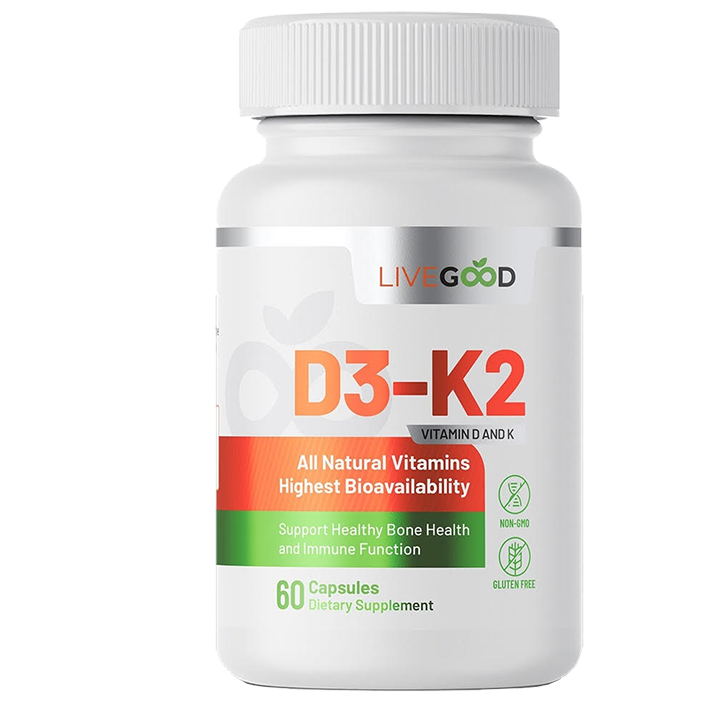The Vital Role of Vitamin D3 for Women’s Health: Unveiling the Benefits and Importance
Introduction
In the quest for optimal health, women often overlook the significance of certain essential nutrients. One such nutrient is vitamin D3, a powerhouse vitamin that plays a vital role in women’s health. From supporting bone health to bolstering the immune system, vitamin D3 offers an array of benefits that are crucial for women of all ages.
Importance for Bone Health
One of the primary reasons why vitamin D3 is important for women is its role in maintaining strong and healthy bones. Vitamin D3 facilitates the absorption of calcium and phosphorus, essential minerals for bone strength. Adequate levels of vitamin D3 help prevent conditions such as osteoporosis, which is more common among women. By promoting calcium absorption, vitamin D3 contributes to optimal bone density, reducing the risk of fractures and ensuring long-term skeletal health.
Hormonal Balance and Menopause
Vitamin D3 also plays a significant role in hormonal balance, particularly during menopause. As women age, their estrogen levels decline, which can lead to various health challenges. Studies suggest that vitamin D3 may help regulate hormonal fluctuations and alleviate symptoms associated with menopause, such as mood swings, hot flashes, and sleep disturbances. By supporting hormonal balance, vitamin D3 can improve overall well-being and quality of life during this transitional phase.
Immune System Support
Another important benefit of vitamin D3 for women is its role in supporting the immune system. Adequate levels of vitamin D3 are essential for optimal immune function, helping the body fight off infections and diseases. Research has shown that vitamin D3 plays a crucial role in activating immune cells and enhancing their response to potential pathogens. Maintaining sufficient levels of vitamin D3 is especially important for women, as they often have unique immune challenges related to pregnancy, breastfeeding, and menstrual cycles.
Heart Health
Heart disease is a significant concern for women, and maintaining cardiovascular health is essential. Emerging studies suggest a potential link between vitamin D3 deficiency and an increased risk of heart disease in women. Adequate vitamin D3 levels may help improve cardiovascular health by regulating blood pressure, reducing inflammation, and enhancing overall vascular function. However, more research is needed to fully understand the intricate relationship between vitamin D3 and heart health in women.
Ensuring Optimal Vitamin D Levels
To ensure optimal vitamin D3 levels, women can incorporate several strategies into their lifestyle. The most natural source of vitamin D is sunlight. Spending time outdoors, particularly during midday when the sun’s rays are strongest, can help the body synthesize vitamin D3. However, it’s important to balance sun exposure with sun protection to minimize the risk of skin damage. Additionally, dietary sources of vitamin D3 include fatty fish (such as salmon and mackerel), fortified dairy products, and egg yolks. If obtaining sufficient vitamin D3 through sunlight and diet is challenging, supplementation may be necessary. Consulting with a healthcare professional can help determine the appropriate dosage based on individual needs.
Vitamin K2
Vitamin K2, often overlooked but equally important, complements the benefits of vitamin D3 and should be considered alongside it. Vitamin K2 works in synergy with vitamin D3 to ensure optimal health outcomes.
While vitamin D3 aids in calcium absorption, vitamin K2 helps direct calcium to the appropriate places in the body, such as the bones and teeth, while preventing its accumulation in soft tissues or arteries.
This collaboration is particularly significant for women’s health as it supports not only bone health but also cardiovascular health.
By taking vitamin D3 and vitamin K2 together, women can promote strong bones and teeth while reducing the risk of calcium buildup in arteries, which is associated with heart disease.
The combination of vitamin D3 and vitamin K2 acts as a powerful duo for maintaining overall health and well-being.
References:
- Holick, M. F. (2007). Vitamin D deficiency. New England Journal of Medicine, 357(3), 266-281.
- Wacker, M., & Holick, M. F. (2013). Sunlight and Vitamin D: A global perspective for health. Dermato-Endocrinology, 5(1), 51-108.
- Thacher, T. D., & Clarke, B. L. (2011). Vitamin D insufficiency. Mayo Clinic Proceedings, 86(1), 50-60.
- Bikle, D. D. (2014). Vitamin D metabolism, mechanism of action, and clinical applications. Chemistry & Biology, 21(3), 319-329.
- Aranow, C. (2011). Vitamin D and the immune system. Journal of Investigative Medicine, 59(6), 881-886.
- Chowdhury, R., et al. (2014). Vitamin D and risk of cause-specific death: A meta-analysis of observational studies. The Lancet Diabetes & Endocrinology, 2(9), 726-735.








